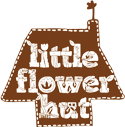Funeral Flowers Singapore
Why No Flowers at A Jewish Funeral?
No matter how appropriate it is to send flowers to the family of the deceased, one must take note that not all accepts this. To some religions, this gesture is a no-no. That means they do not take the gesture as nice but rather offensive. Know that not all see a flower as a symbol of sympathy, condolence, and innocence. Some would find these flowers as one’s happiness and joy. Things that might not be suitable and appropriate at all for anyone, as part of a tradition to celebrate life and memories during funerals.
What would Jewish do on funerals?
Sending condolence flowers to Jewish funerals is not a nice thing to do. This is oddly the most offensive gesture to do in their funerals. Theirs is different as it is only due in the next 24 hours. Yes, they do not spend days doing funerals but only a day after the death of a loved one. They do it quite solemnly and celebrating life is not a good time during these occurrences. They mourn so much and a flower is not an ideal thing to comfort them. It is good to find out first what is appropriate before committing any unintentional sending of wrong messages during these times.
Jewish Bereavement and Funeral
As their tradition speaks loudly, Jewish funerals are set to take place soon after death. Unlike the usual traditions, we know about, theirs is different. They have limited time for planning and preparing things for a funeral and for visitors to join them in their mourning. First off, they washed the dead’s body according to ritual tradition. This is performed by members of the Chevra Kadisha who have to be of the same sex as that of the dead. Next, they buried them in a simple wooden casket without embalming the body. The casket is purely made of wood with nothing of metal on it. Once in the coffin, the body will not be seen by anybody.
What is Shivah?
Shivah is where Jews observe seven days of intense mourning which the immediate family, including parents, children, and siblings come together to join. They usually remain at home, offer prayers, and practice their mourning traditions. This tradition continues even up to 30 days and some would even do it for a full year after the death of a loved one. This is how they do it. It is more exclusive as compared to other funerals we commonly knew and saw.
Jewish Burial Customs
Unlike Christian funerals, where flowers, wreaths, and live plants play a very important role during these times. With this kind of funeral, viewing and other services are allowed. But this goes differently with the Jewish, their funeral does not include both the viewing and funeral service. They do not display flowers anywhere. They just do it briefly and solemnly and more on offering prayers, psalms, and eulogies. They usually do this either on gravesites, synagogues, or funeral homes.
What is the most appropriate thing to do in these funerals?
Whenever you personally know someone that comes from a Jewish family, instead of bringing flowers to their funerals you can opt into providing meals, sending condolence cards, or donating to charities. These are some of the most acceptable things to do when you want to express sympathy or grieve with a Jewish family. Giving gifts or donations to a chosen charity and bringing of food to the grieving family is much more appreciated and accepted by Jewish.
Liberal and Orthodox Jews
Though giving flowers is generally not allowed in Jewish funerals, this does not mean that not all of them would accept it anymore. While ending gift baskets containing food and fruits would still be the most appropriate thing to do, some Jews still accept flowers in any way. They are the liberal Jews that tend to accept and understood the gesture widely, but remain a big no-no to Orthodox Jews.
Other Jewish Burial Customs
There is a different custom which Jews believed when it comes to what to do with the body of the dead. Organ donation for transplant and medical research is considered a good deed so they allow this. For some other reasons, performing an autopsy to the body is not allowed nor cremation. Just like embalming, this one is not allowed in Jewish tradition.
What happens after the funeral?
The reason why bringing of food is much more appreciated on Jewish funerals is because of what they do after the burial. They all gather at the bereaved home for a meal. Some would prefer to suggest a charity where guests could donate instead. As not part of their tradition, giving of flowers is among what is listed.
Regardless of what tradition you believed in, giving of flowers in a funeral is still an accepted tradition to many people. But it is also important that before we send our sympathies and condolences, we have to know the preferences of the family first. In this way, we will have an idea of what is the most appropriate thing to do. Whenever you want to give out funeral flowers to a friend or a colleague you knew personally, who have departed from this world, you can ask your florist on what floral arrangement you can have. There are a number of them who are experienced enough to handle the situation and give you some advice you can definitely observe.
